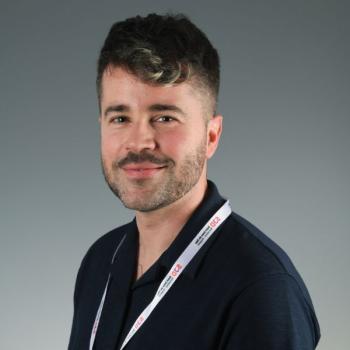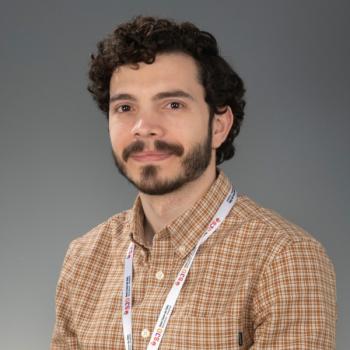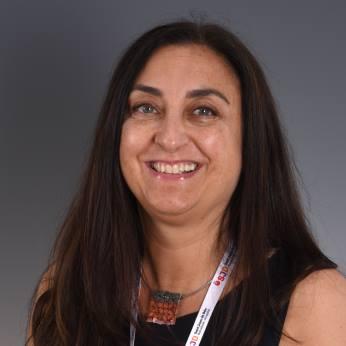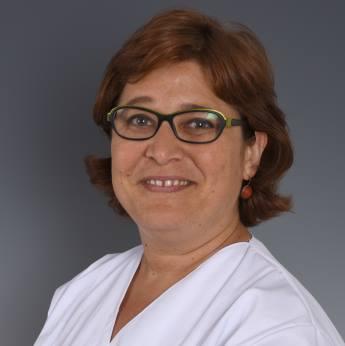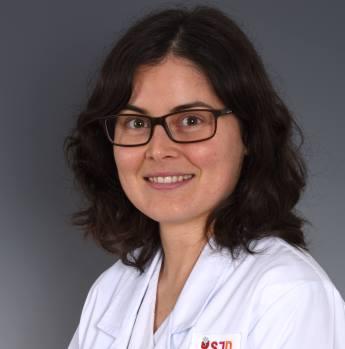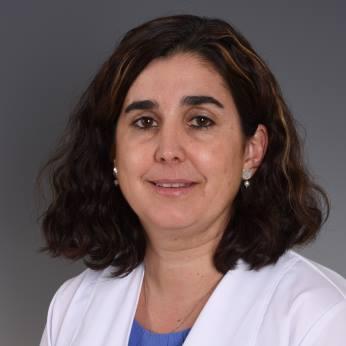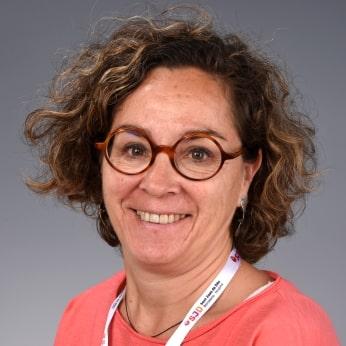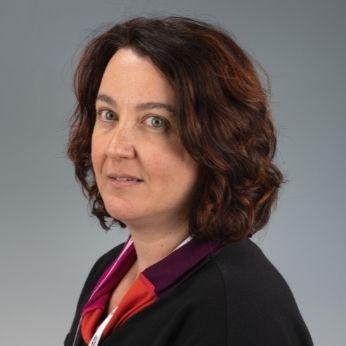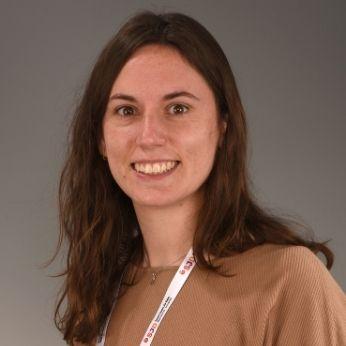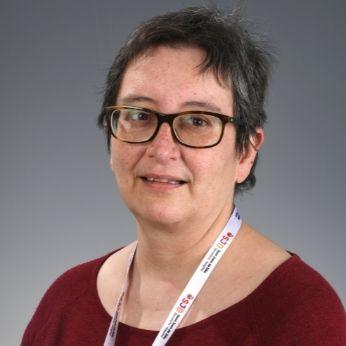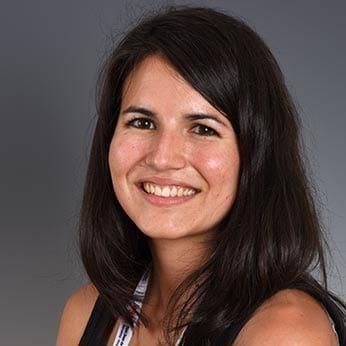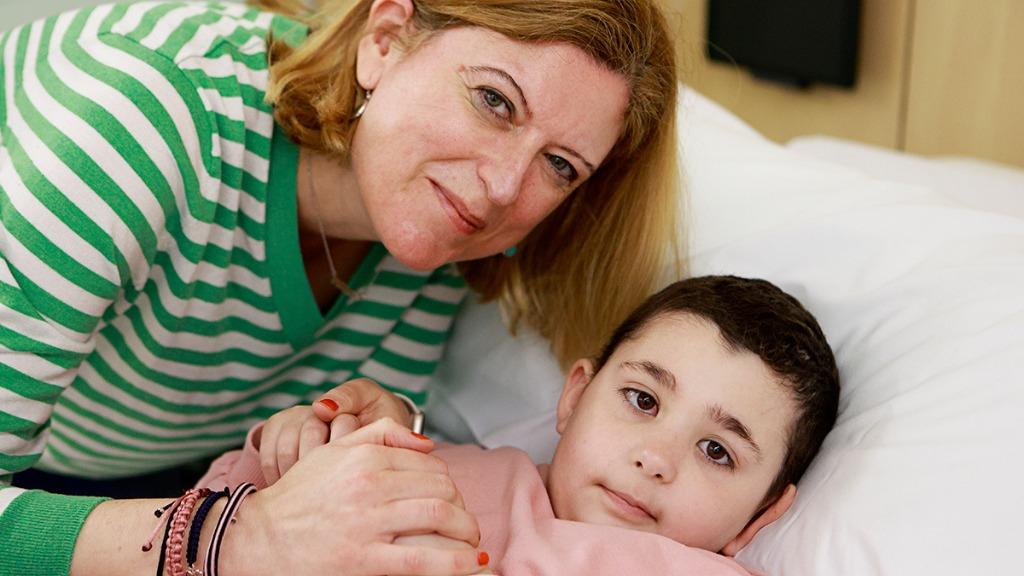
SJD Barcelona Children's Hospital makes leaps forward in the treatment and research of rare diseases.
As a reference tertiary-care university hospital, at the SJD Barcelona Children's Hospital, we treat complex patients referred from all over Catalonia, Spain and the rest of the world. Among these patients, over the years we have traditionally handles a considerable number of patients with rare diseases, which affect less than five in 10,000 people.
We have experience with over 1,200 types of rare diseases. Three quarters of these cases involve children under four years old, classing them as ultra-rare diseases. That is why we are one of the most experienced facilities in Spain in the management of rare diseases.
Accreditations
We are part of ERN-Ithaca, the European Reference Network for Rare Malformation Syndromes, Intellectual and Other Neurodevelopmental Disorders.
Likewise, we are also one of the three members of the first Network of Units of Clinical Expertise (XUEC) in rare diseases, created by the Catalan Health Service.
Why the SJD Barcelona Children's Hospital?
We have treated more than 12,000 patients with rare diseases in recent years.
Our wide-ranging experience
Our Department has treated more than 12,000 patients with rare diseases in recent years.
- More than 20% of children who have this type of disease and their families undergo between one and three years of symptoms until they are diagnosed. Our vast experience allows us to make accurate diagnoses for these patients.
- We have some advanced diagnostic tools, such as a genome-based diagnostic platform, which is essential given that 80% of these conditions have a genetic basis.
Each of our patients is assigned a case manager: a staff member whose job it is to coordinate healthcare provision, organise scheduling and make life as easy as possible for families.
Comprehensive care for patients and their families
Every patient has a case manager who coordinates their care, organising their schedule and making families' lives as easy as possible.
- We provide comprehensive care, which involves a multidisciplinary team of professionals. We rely on case managers, who coordinate care for each one of our patients. In addition to providing comprehensive treatment for children, we plan their visits, tests and check-ups to fit in with the daily lives of patients and their families.
- We offer face-to-face and virtual consultations. We keep in touch with patients and families through our Patient Portal. We provide care-related and psychosocial support and guidance on diagnoses and treatments.
We research a huge number of rare diseases. As such, patients can contribute to and benefit from the progress we make.
Research and dissemination
We are currently researching numerous rare diseases. Patients can therefore contribute to and benefit from the advances we are making.
- We are a leading national centre for research into rare diseases. Through the Paediatric Research Institute which the University of Barcelona (UB) and the Polytechnic University of Catalonia (UPC) work with, and through our participation in CIBER on Rare Diseases (CIBERER), we conduct different lines of research in the field of rare conditions.
- The Clinical Research Unit at SJD Barcelona Children's Hospital provides paediatricians the chance to develop and take part in clinical trials.
- We are connected across the world. One of the main difficulties investigators face when starting clinical research on a rare condition is getting a significant sample of patients, as that number will be small in a single country.
- We do significant outreach and contact patients and families electronically through the Share4Rare and Metabolic Guide portals.
Specialisms and services
Team
We shine a light on the unknown, to help care for and cure children with rare diseases.
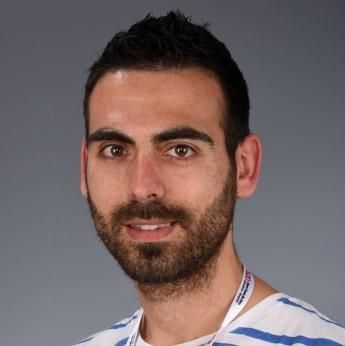

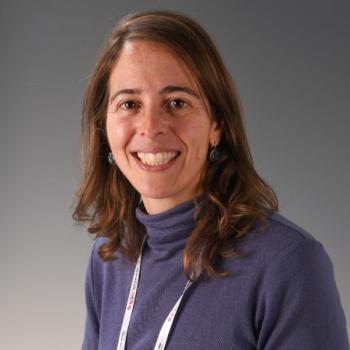
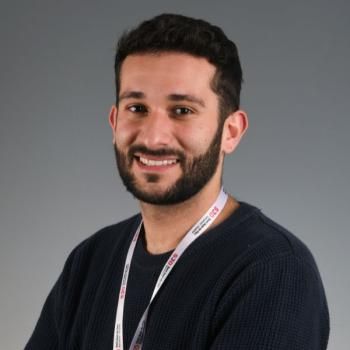



Patient stories
Research
The Institut de Recerca Sant Joan de Déu (IRSJD) has a research group in Genomics for the diagnosis of rare diseases that develops genomic tools to diagnose neurological diseases and other minority pathologies of genetic origin.
SJD Barcelona Children's Hospital conducts different clinical studies. We research Lowe Syndrome, congenital defects related to glycosylation, neurodegeneration with brain iron accumulation (NBIA), in cooperation with Neurology, and hereditary retinal dystrophies (Stargardt disease, Leber congenital amaurosis, achromatopsia, X-linked retinoschisis and cone dystrophy), in cooperation with Ophthalmology.
The scientific activities of the Hospital also include research carried out in the Genetic and Molecular Medicine Department and the Paediatric Research Institute of SJD Barcelona Children's Hospital (IRSJD).
Basic and translational research
The Genomics for the diagnosis of rare diseases research group develops genomic diagnostic tools to diagnose neurological diseases and other minority pathologies of genetic origin.
Teaching
The SJD Barcelona Children's Hospital is a university hospital affiliated with the University of Barcelona. We share our knowledge and train professionals so that they can go on to specialise in high-complexity medicine.
Specialised training for internal medical residents (MIR/FIR)
Members of the department play an active role in undergraduate and postgraduate teaching at the University of Barcelona. Standing out among these activities, is the teaching on the Pediatrics modules on the Degree in Medicine, in the Pediatrics MIR and the Clinical Biochemistry FIR.
Master's in Neuropediatrics
We are involved in the theoretical and practical programme for Neuropediatrics, aimed at those holding a degree in Medicine and Surgery. Specialists in Pediatrics and Neurology.
- Directed by: Dr Carme Fons Estupiña
- Number of credits: 120 ECTS
- Duration: 2 years
Resources for families
We are building a community to bring together patients, caregivers, clinicians and researchers to join forces and make an impact in rare diseases.
Online medical advice and practical information to meet the needs of patients living with congenital metabolic diseases and their families.
